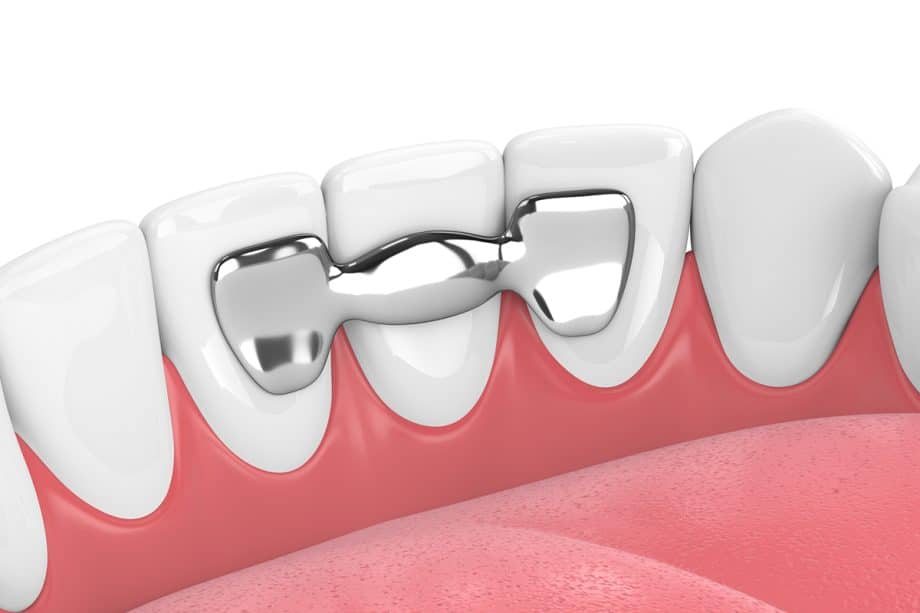Dental bridges are durable, attractive, and functional tooth replacements. They can restore your chewing ability and help you feel more confident about your smile. In general, dental bridges can last anywhere from five to 15 years.
What Are Dental Bridges?
A dental bridge is an economical replacement option for adults with missing teeth. A bridge consists of two crowns or implants, one or more artificial teeth called pontics, and abutments to connect the pontics to the existing teeth. Bridges can replace one to four missing teeth, but most dentists use them to replace one or two.
Advantages of a Dental Bridge
Restore Your Beautiful Smile
Missing teeth can make you feel uncertain and shy about showing your smile. You may take pains to hide your smile in public or in photos. With a new bridge, you will feel like smiling again.
Improve Chewing Ability
Most patients find chewing around a missing tooth challenging. A bridge restores the ability to chew on both sides of the mouth.
No Surgery Required
Getting a new bridge requires no surgery for all types except implant-supported bridges. Some patients cannot undergo surgical procedures for health reasons, and bridges can help them achieve a complete smile.
Types of Dental Bridges
Traditional Bridges
A traditional bridge connects to crowns on either side of the gap between your teeth. The dentist prepares your natural teeth to accommodate the crowns and bridge, then installs the appliance. These bridges are economical and long-lasting.
Cantilever Bridges
Cantilever bridges are useful when only one healthy tooth can hold the bridge. Dentists often use them when the missing teeth are in the back.
Maryland Bridges
A Maryland bridge does not connect to crowns but has small metal wings that cement to other teeth. It causes less tooth stress than conventional or cantilever bridges but is more fragile.
Implant-Supported Bridges
Implant-supported bridges are the best of both worlds. They provide sturdy anchors for the artificial teeth. They create less stress since they do not require crowns on natural teeth.
Preparing Your Dental Bridge
First, your dentist will welcome you for a consultation to determine whether a bridge is your best solution for missing teeth. If you proceed, you need just one appointment to receive your bridge.
The dentist will numb the gums around your missing tooth with a local anesthetic for your comfort and ensure the area is free of plaque and bacteria. The dentist then shapes the natural teeth on either side of the gap to prepare them for new crowns that will support the bridge.
When the bridge is ready, your dentist will check the fit and cement it into place. It may take about two to three weeks to become fully accustomed to wearing the bridge, but your teeth will feel natural after this adjustment period.
Extending the Life of Your Dental Bridge
While bridges have a long lifespan, you can take steps to preserve them for the future. Brush your teeth at least twice a day. Floss all of your teeth daily, including under the bridge. You can use a floss threader and interproximal brush for effective cleaning. You can find both tools at any pharmacy. Keep all your scheduled dental appointments to check the bridge and adjacent teeth.
Further steps you can take to preserve your bridge include:
- Taking care to chew evenly on both sides of your mouth to distribute bite force
- Avoiding hard and sticky candy like peppermints, caramel, and toffee since these can break your bridge or pull it out
- Not chewing ice, pens, or any non-food objects
- Avoiding using your teeth as tools
Frequently Asked Questions About Dental Bridges
Do dental bridges have any disadvantages?
Dental bridges have one drawback. They may put extra stress on the adjacent teeth. Cantilever bridges, in particular, have this problem. If you opt for an implant-supported bridge, you can easily solve this problem.
Do implant-supported bridges last longer?
Yes, implant-supported bridges last longer than conventional crown-supported bridges. They will eventually need a replacement for general wear and tear.
Call Suwanee Family Dentistry
People with missing teeth often feel that they can do nothing to fix the problem. A bridge is a long-lasting, economical alternative to partial dentures and implants. Please call our office at
678-714-2380 to schedule an appointment for a consultation.
